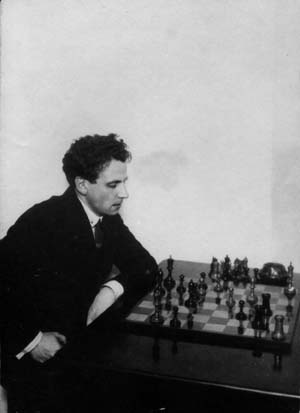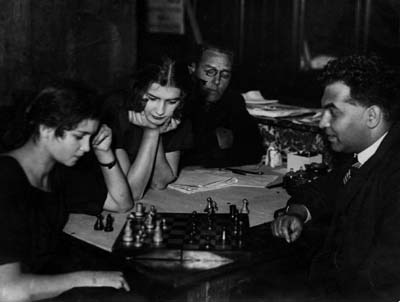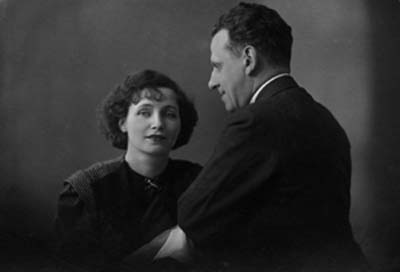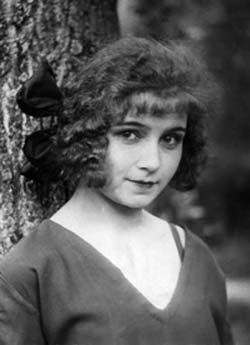27.07.2004
S.Morozov. TEN AND A HALF WEEKS. THE WAR AND THE DEATH OF A.F.ILIN-ZHENEVSKIY.

From editorial staff. Precisely 73 days or ten and a half weeks have been living an outstanding chess player and public figure, twice champion of his native city Alexander Fiodorovich Ilin-Zhenevskiy from the beginning day of the Great Patriotic War till his death. His wife Taisia Aleksandrovna, born Viazovskaya outlasted him for four days. She was very talented: danced in the ballet of the Leningrad music-hall, sang, painted, played chess in the final of the city women’s championship in 1940.

Taisia plays with R.Rety, her sister Aleksandra and G.Levenfish support her.
This year, on the 16th (28th) of November (not April, as it’s indicated in “Encyclopaedia” of 1990) it‘ll be 110 anniversary of A.F.Ilin-Zhenevskiy. Editorial staff is preparing materials to the anniversary of the famous revolutionary and diplomat, writer and journalist, brother of F.F.Raskolnikov – the man of extraordinary fate, which is worthy of describing rather in a novel than in feature story.
It is surprising that there is still no serious work in chess historical literature about the person due to whom chess became respected and available in our country. That’s why we have offered collaboration to Ph.D. in history, associate professor S.A.Morozov, who defended a thesis on the subject “A.F.Ilin-Zhenevskiy - social and political, scientific and educational work in 1910-1941” in 1992.
In the year of sixtieth anniversary of the siege of Leningrad it was considered appropriate to start our work with description of tragic events of the war years from the beginning of the war until the death of chess couple. It’s so important also because there are a lot of legends about the reason and the time of Ilin-Zhenevskiy’s death. Chess historian I.Romanov wrote in the journal “Science and life” (№ 11, 1987) in his article “Following the course of the chess history” referring to the memoirs of V.Gankevich that Alexander Fiodorovich had been killed in Staraya Ladoga. V.Zajtseva and O.Kuchkina reported the same year in their article “Brothers” in “Komsomolskaya Pravda” that Ilin-Zhenevskiy had perished in blockade Leningrad in 1941. The colonel of the Medical Service A.Jakubenko, who was the son of our publication hero’s class-mate, reported in the article “People of the great revolution” that “Ilin-Zhenevskiy when leaving Leningrad along the Road of Life across the Ladoga in December 1941 rushed to help a girl that had fallen into an ice-hole. He rescued her, but couldn’t get out from the ice water, because he was weakened and exhausted”. There is also a version that Ilin-Zhenevskiy and his wife perished when they having been arrested were sailing on a barge with other prisoners. The research of S.A.Morozov provides exact answers for all the questions.
Moreover our readers will be the first to read the diary that T.A. and A.F Ilin-Zhenevskiy were keeping from 30.06 till 09.08.1941. It was kept in the family of Kraskins that lived at №18 Tolmachiov Street, in one communal flat with T.A. and A.F.Ilin-Zhenevskiy since mid-thirties till 1941.
Fortunately, bombs didn’t destroy the house. That’s why all the furniture and the décor of the rooms, where T.A. and A.F.Ilin-Zhenevskiy had been living weren’t damaged during the war and the siege. But in 1946 the rooms were inhabited and so the library, the furniture and the belongings were sold.
The store “Writers’ book shop” took along with the library all the folders with documents. It’s unknown what happened to the files of A.F.Ilin-Zhenevskiy afterwards.
“Rostov-on-Don. 22nd of June 1941, 12 o’clock. I’m a captain of Leningrad team, which participates in the semi-final of the national chess championship. One of the last rounds is taking place. A.Ilin-Zhenevskiy, A.Tolush, I.Rabinovich and some other masters are at chess boards.
Suddenly the agitated wife of Ilin-Zhenevskiy runs into the tournament hall and tells me in a whisper: “There are awful news, it was just announced on radio that the Germans attacked the Soviet Union…” I’ve asked her to calm down and not to tell anything the players yet.
But 10-15 minutes later all the participants were in the know. The round, however, finished duly. As I recall I.Rabinovich had won his game and then came to me and inquired: “With whom we are at war?..”
They phoned in Moscow and got the instruction: to continue the tournament until further directions. But already the next day it became impossible. Some chess players had to go to recruiting centers immediately. The tournament was breaking up.
As far as I remember Ilin-Zhenevskiy turned to me:” Please, advise me what to do. I have tickets to the tour to the south. Should I go there or return to Leningrad?” “I don’t take risks of advising in such cases, - I answered. – As for me, I’m going home without a backward glance.” “Then, I’m going with you”, - decided Ilin-Zhenevskiy.
It wasn’t easy to return home. Thousands of holiday-makers rushed from the Crimea and the Caucasus and it was impossible to get places in trains. We managed to reach Leningrad via Moscow with great difficulty.
The city wasn’t under the siege yet, but the Germans were already bombing the city and there were difficulties with food supply”…
A.Model. “Years of the siege”.
(the manuscript is kept in A.Model’s archives)
The Great Patriotic War broke out. Semi-final of the national chess championship was stopped, A.F.Ilin-Zhenevskiy hurried to come back to Leningrad to take up the duties of the Proxy[Director] of library sector of the Leningrad Publishing House, at the same time working there as the political editor. He had the same duties before the war, but now the number of the shops he had to supervise increased, he worked also in the surplus fund of the Public library named after Saltykov-Schedrin and in the store “Writers’ book shop”.
Alexander Fiodorovich and his wife constantly had to fulfill labour service since the first days of the war, as every Leningrad citizen. The readers can learn about this and other severities of that time from the diary kept by T.A. and A.F.Ilin-Zhenevskiy. I’d also like to mention the reminiscences of A.K.Golubeva, who worked almost 30 years in post-war period as an assistant of the main inspector in the auditing department of the Ministry of Finance of Russian Soviet Federative Socialist Republic in Leningrad:
“When the war began I was assigned among the small group of the Finance & economics institute students by the district committee of Komsomol to work in the Leningrad Publishing House instead of employees who went to the front. But already in a week we were sent to set up defensive fortifications. At first we dug trenches nearby Srednaya Rogatka, then near the stations Batetskaya and Peredolskaya of the Vitebskaya railway. The member of the Leningrad Publishing House Alexander Fiodorovich Ilin-Zhenevskiy was the head of that group. He remained in my memory as a modest man with soft voice, who was calm and self-possessed in any circumstances, even in cases of bomb raids.
Alexander Fiodorovich took along his brief case even to the diggings. It was a very nice brief case with a metallic plate, on which there was engraved: “To fellow-exile A.F.Ilin from V.I.Ulianov /Lenin/”. We were frequently scrutinizing this case during short rest-time and Alexander Fiodorovich was telling about his life, about V.I.Lenin, about Geneva.
Being young and inexperienced we didn’t understand all the dangers of the war and sometimes considered that we were doing useless job. Then I heard for the first time from Alexander Fiodorovich that we would defend our city most likely just at that place, at the Leningrad walls. But having stated the impending difficulties he believed in victory.
When we were trenching near the stations Batetskaya and Peredolskaya, food supplies were irregular, we had to sleep on the bare ground in the open air. Alexander Fiodorovich Ilin-Zhenevskiy shared our hardships. Once we had lentil for dinner. I had never seen it before and all the more hadn’t eaten. Lentil soup cooked on open fire without seasoning seemed to me tasteless and I poured more than a half of my helping out into a bush. Alexander Fiodorovich reproached me for throwing out wholesome food and told that we were likely to eat tree bark during the war. Later during the siege I recollected that lentil soup and the words of Alexander Fiodorovich time and again.
Once we had to walk 35 kilometers in the night along wood tracks. And Alexander Fiodorovich saw to it that everybody was keeping up with the pace, encouraged those, who were tired…”

T.A. and A.F.Ilin-Zhenevskiy at the end of the thirties.
A.F.Ilin-Zhenevskiy had worked in the Leningrad Publishing House until 31s of August. And from the 1st of September he was dismissed because of evacuation.
According to the eyewitnesses, i.e. the citizens of the town Novaya Ladoga, collected by the famous regional ethnographer Ju.A.Siakov and described in his article “The death of the commissar”(“Volkhovskie ogni”, 11.03.1988) T.A. and A.F.Ilin-Zhenevskiy were evacuated on the steamship “Simferopol”. The steamship passed Shlisselburg on the 1st and 2nd of September and headed for Novaya Ladoga. On the 3rd of September, when the steamship with barge was coming out from the canal into the water-way of Volkhov, there appeared fascist bombing aircraft in the sky. When the captain moored to the pier the bombing began. Many people were killed and injured. A.F.Ilin-Zhenevskiy was also injured.
According to the eyewitnesses Ilin-Zhenevskiy died of the wound not regaining consciousness. The evidences of eyewitnesses concerning the wounding differed. Some remembered that Alexander Fiodorovich was wounded in the hip and then the leg had to be amputated. V.V.Nikiforov, who was working at the hospital of water-transport workers at that time, reported that Ilin-Zhenevskiy had two legs shot off.
In the archives of the family of Viazovskiy there is a postcard dated the 8th of September, which was addressed to the All-union physical culture and sports committee in the Council of people's commissars of the USSR by the famous chess player and coach G.A.Goldberg, who served as the third rank commissary in Novaya Ladoga at that time. The Council decided to send the postcard to the relatives of chess player’s wife. Grigoriy Abramovich wrote in the card: “I must communicate to you about the grievous fate of the USSR master in chess A.F.Ilin-Zhenevskiy. On the way from Leningrsd to Sviritsa on the steamship “Simferopol” Ilin-Zhenevskiy and his wife got into fascist aircraft bombing in Novaya Ladoga. One bomb fell into the barge standing near the steamship…His wife took him with exterior help to the hospital for water-transport workers. Alexander Fiodorovich died immediately after being brought to the hospital. His wife wasn’t injured during the bombing”.
In the notification № 735 of 20.10.1941 of the Civil Registry office in Novaya Ladoga addressed to M.A.Viazovskaya, the elder sister of T.A. Ilina-Zhenevskaya it was written: “Your brother-in-law Ilin-Zhenevskiy died on the 3rd of September in the town Novaya Ladoga of the Volkhov region during the enemy air bombardment…”
In the book of A.V. Smolianinov “Doctor in the war field” the following data are cited on the page 83:
“A famous in his time diplomat and chess player A.F.Ilin-Zhenevskiy was taken to the doctors of the naval aviation A.V.Panov and P.P.Mineev that worked in field hospital. The steamship, on which Ilin-Zhenevskiy and his wife were crossing the lake, was attaced by fascist aircraft. A bomb splinter had taken off his leg.
Panov and Mineev did their uttermost to save his life. But they didn’t manage to get over the severe shock and the loss of blood and the injured died”.
The colonel of medical service A.A.Lopatenok, who was engaged in chess journalism, got in touch with A.V.Panov. And the latter told him the romantic episode: when dying Ilin-Zhenevskiy “was head of medical care rendering”.
It’s reported in the notifications that all the dead during the air raid including A.F.Ilin-Zhenevskiy were buried in common grave at military cemetery. The same was told also by A.M.Fadeev, the Executive committee chairman of Novaya Ladoga in 1941.
Thus we may establish according to collected data that A.F.Ilin-Zhenevskiy died on the 3rd of September in Novaya Ladoga of wound he received during fascist aircraft bombing.
The same is testified by the following document:
“Deathstatement№ 162
1. Surname: Ilin-Zhenevskiy
2. Name: Alexander
3. Patronymic name: Fiodorovich
4. Sex: male
5. Nationality: Russian
6. Time of death: the 3rd f September
7. Place of death: town Novaya Ladoga
8. Cause of death: killed by air bomb. 47 years old…
12. Documents confirming the fact of death: statement of water hospital
Applicant’s signature: Ilina-Zhenevskaya”.
A.F.Ilin-Zhenevskiy was buried in common grave on the 4th of September.
Later there happened another disaster, which is described in detail in the article “The death of the commissar”.
In the article there is a quotation from the testimony of Z.P.Bushueva, who worked in Novaya Ladoga museum:
“The dead were put in mortuary. And the wife of Ilin-Zhenevskiy stayed in the hospital corridor. She was wearing a coat of light colour, all blood-stained. She had nowhere to go. Then my mother A.V.Bujanova asked a hospital driver Nikolaj Entsen to bring her to our house (Gorkogo street, house 26) and cleaned her coat at home in the evening…She kept lying on the bed and almost didn’t talk, but lamented “How will I get along?”.
Z.P.Bushueva told Ju.A.Siakov about the last day of T.A.Ilina-Zhenevskaya:
“When I was going out Taisia Aleksandrovna asked to lock the house (having handed over the letter to the Executive committee – S.M.). She was left alone, because my mother Aleksandra Vasilevna was at the hospital that time (she worked there). I locked the door and went to the Executive committee. After delivering the letter I slowly went back. Near the house I was come up with the chairman A.M.Fadeev, N.V.Barabanova and policeman. When I opened the door, Ilina-Zhenevskaya wasn’t at home. We opened the door to the garret and she was hanging there.
T.A. Ilina-Zhenevskaya was in the state of deep mental depression and did away with herself. She wrote about her intention to do that in her letter to the Executive committee and asked to accuse nobody of her death. She was buried near her husband. Her body as the body of Alexander Fiodorovich was taken to cemetery on a common peasant wagon”.

T.Viazovskaya at the end of the twenties.
When we were editing this article, we got in touch with Zoja Petrovna. She confirmed the facts written down from her words and said that the disaster happened on the first Sunday of September in the afternoon. She remembered that precisely. Specifying the date by the calendar we discovered the exact day – the 7th of September.
Having summarized the testimony of witnesses, one may draw a conclusion that the death of her beloved husband, with whom they were bound by true and sincere feelings, impelled T.A. Ilina-Zhenevskaya (1909-1941) to run to extremes. But unfortunately, there were also other circumstances that aggravated her sorrow and which may be considered as culpable actions and heartlessness of the people, she were surrounded by in the moment of despair.
It turned out that hospital attendants robbed dying A.F.Ilin-Zhenevskiy, stole his inscribed revolver, his gold watch, the wallet and the documents threw about the street. Local authorities rejected the request of Taisia Aleksandrovna for departure to Moscow or Kislovodsk to her mother and sisters. There is much truth in the accusation of the Ilina-Zhenevskaya’s sister A.A.Viasovskaya against G.A.Goldberg, who leaved Taisia Aleksandrovna in the state of deep mental depression. He saw her to be on the verge of nervous breakdown, afterwards he told her sister that she asked him for revolver to shoot herself. It’s important to note that G.Goldberg met T.A.Ilina-Zhenevskaya at the Executive committee the next day after the funeral of Alexander Fiodorovich, on the 5th of September, and 2 days later – on the 7th of September the widow of Ilin-Zhenevskiy did away with herself (or 4 days later, as there is another date – the 9th of September in the death statement № 322 of 20.09.1941 of the Civil Registry office in Novaya Ladoga). That’s why an extract from the Goldberg’s letter of December 1971 quoted in the article “The death of the commissar” describing that he was trying to recover her from the severe depression, but “had to return to his garrison and to enter on duty… the same night Taisia Aleksandrovna did away with herself” doesn’t represent the real facts.
There is one more point to give publicity to. In before cited document of 20.10.1941 of the Civil Registry office in Novaya Ladoga sent to M.A.Viazovskaya, the elder sister of Taisia Aleksandrovna it was written: “Ilina-Zhenevskaya (it is written “daughter” and above – “wife” – S.M.) being upset and grieving took her own life, having hanged herself, she was buried at the same place (common cemetery in Novaya Ladoga – S.M.). The things, which she had with her, were given under her will to her acquaintance Goldberg Grigoriy Abramovich, his address is military unit 706. Goldberg G.A. It’s written in the letter that the gold watch, the gold ring and 250 r. are to be passed to you, that’s why you may apply to the address referred above for sending you the things. The death certificate is enclosed. If you have any questions, you may apply to the following address: town Novaya Ladoga, Volkhov district, Leningrad region, the Civil Registry office. Ivanova, Head of the Civil Registry office.”
It is appropriate to cite here several words, which G.A.Goldberg wrote in the card dated 8.09.1941 to sports committee:
“As the steamship “Simferopol” went from N.Ladoga to Sviritsa with all the luggage of Iliny-Zhenevskie, I’ve arranged that T.A. would go to Moscow on the return of the steamship to N.Ladoga. At the same time I have assumed measures to search the luggage. But Taisia Al. committed suicide on the 7th of September about 2 p.m…In the letter to me Taisia Al. asked not to tell her and her husband’s relatives about their tragedy. I ask you to take this into account. The steamship came to N.Ladoga and their luggage got lost, for that reason I couldn’t comply with some of her requests”.
It’s unlikely that Taisia Aleksandrovna in the same letter was asking Goldberg to pass the things to her relatives and not to tell them about the disaster.
The sister of T.A.Ilina-Zhenevskaya Aleksandra Aleksandrovna got in touch with G.A.Goldberg after the war. He explained that the things and the money were lost. Then the future honoured trainer of the USSR and the Head of the department of chess in the State Institute of physical culture avoided the meetings.
In 1971 when the attempts were made to determine the precise burial place of Ilin-Zhenevskiy, G.A.Goldberg was asked to come in Novaya Ladoga and to point precisely the burial place, but he couldn’t find time.
The granite obelisk was erected at the common memorial cemetery in Novaya Ladoga in 1978. It’s inscribed on it: “The hero of the Great October Ilin-Zhenevskiy Alexander Fiodorovich, the famous diplomat and chess player. Ilina-Zhenevskaya (Viasovskaya) Taisia Aleksandrovna, the wife and the close friend”, life years.
Heroism and tragedy inseparably accompanied Alexander Fiodorovich throughout all his life. Suffice it to remember that his own brother F.F.Raskolnikov publicly opposed Stalin and that Taisia Aleksandrovna was just the last in the regrettable series of Ilin-Zhenevskiy nearest relatives, who closed their days of their own free will – his grandfather, his father, his uncle and his first wife. There remained the autobiographies of his brothers, notes of their mother and a lot of other evidences. And one can’t resist asking the question: why the brother of the Stalin’s personal enemy hadn’t been subjected to repressions.
We will try to describe many other episodes of A.F.Ilin-Zhenevskiy life in following publications.
In conclusion we’d like to express gratitude to Svetlana Aleksandrovna Viasovskaya, the niece of T.A.Ilina-Zhenevskaya and to Ph.D. in history Juriy Aleksandrovich Siakov for the assistance in preparing materials for publication.
